The Economist: Vladimir Putin begins Operation Blame Ukraine
The Kremlin senses an opportunity in the tragedy of Crocus City Hall.
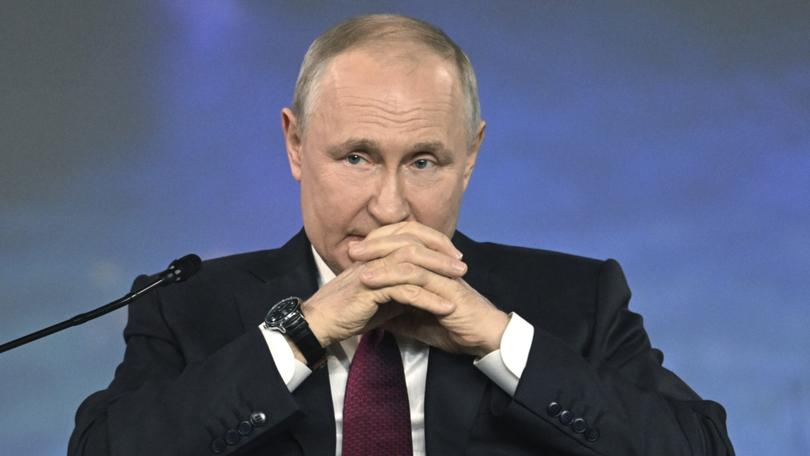
Vladimir Putin is a man who likes victories; preferably stage-managed ones. A fixed election win followed by an exhilarating concert. A rousing Victory Day speech. Eight goals in an ice-hockey game.
The dictator copes less well with unscheduled setbacks, preferring to disappear from the stage.
In 2000 he fumbled his response to the Kursk submarine tragedy. He was absent for over a day following the failed storming of the Beslan school in 2004, in which 186 child hostages were killed.
Sign up to The Nightly's newsletters.
Get the first look at the digital newspaper, curated daily stories and breaking headlines delivered to your inbox.
By continuing you agree to our Terms and Privacy Policy.Last year, when Yevgeny Prigozhin and his band of mercenaries made their way towards Moscow, Mr Putin was initially nowhere to be seen. So if he took a full 19 hours to conjure up a short TV performance to speak about the massive intelligence failure at Crocus City Hall in Moscow, he was falling into a familiar pattern.
The address itself gave little away—and appeared to serve as a hedge.
Mr Putin claimed, ludicrously, that Ukraine had opened a border “window” to the terrorists as they tried to escape Russia in their white Renault Symbol. (Eleven people that Russian authorities blame for the attack have been arrested.)
But Mr Putin stopped short of directly attributing responsibility to Ukraine for the attack — and said nothing about the Islamic State group that said it had carried it out.
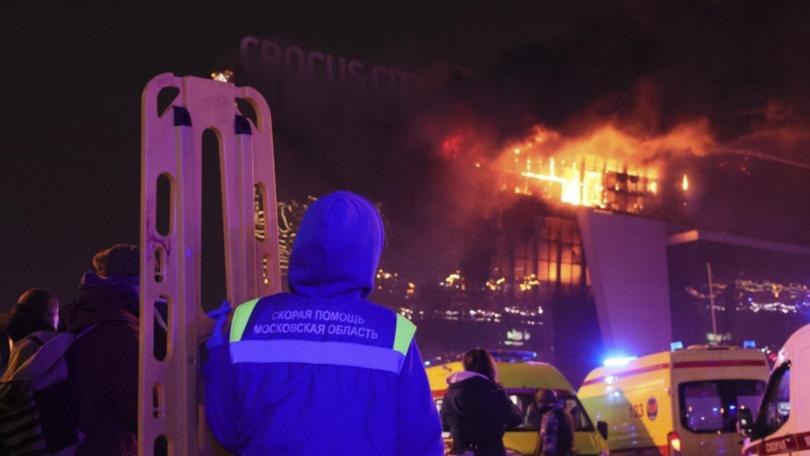
Part of Mr Putin’s reluctance to go all-in on blaming Ukraine might reflect a worry that the American government is sitting on intelligence that could undermine such a claim.
Part might be embarrassment at his security agencies’ failure to act on American warnings on March 7th of an imminent attack.
Indeed, just three days before the assault Mr Putin had brushed off that intelligence as “blackmail.” Such a hubristic blunder would have consequences in a country where power can be held to account. Russia is not such a country.
The attack nevertheless represents a blow to the reputation of Mr Putin and the security services on which he depends.
The manner of the assault, in which at least 137 people lost their lives, will not soon be forgotten.
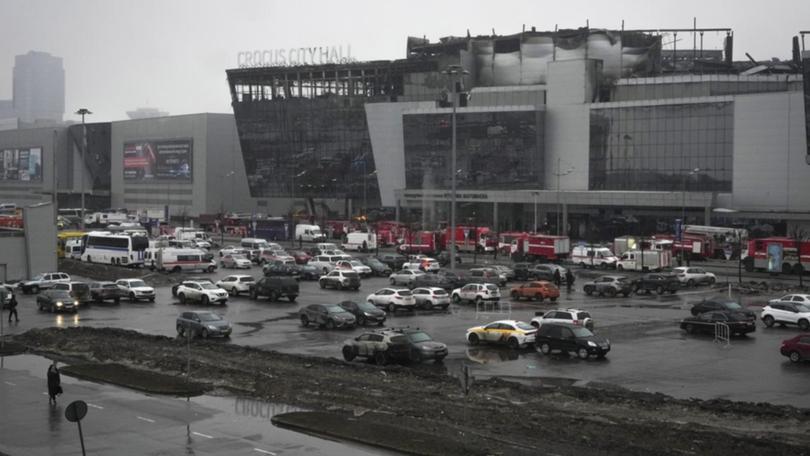
Some victims were killed within minutes when the gunmen opened fire from automatic rifles. But most succumbed to fire and smoke inhalation after the assailants set the auditorium ablaze.
More than 200 people may have been in the hall when part of the roof collapsed.
When emergency workers reached the smouldering ashes they found 28 bodies in a single toilet. Whole families had been hiding together, with mothers reportedly shielding their children.
There are many questions over the inept security at the glitzy venue, which is in an entertainment park in Moscow’s north-west suburbs.
It is unclear why local police failed to respond quickly.
A producer of a show held at Crocus City Hall ten days before the attack noted that 200 security guards were present that night.
Some apparently unusual aspects of the attack—for supposed jihadists, the killers seemed keen to stay alive—have provoked conspiracy theories that parts of the Russian establishment may have been in on the act.
The more convincing explanation is that an Islamist terrorist group capitalised on Russia’s wartime distractions, ethnic tensions and economic difficulties.
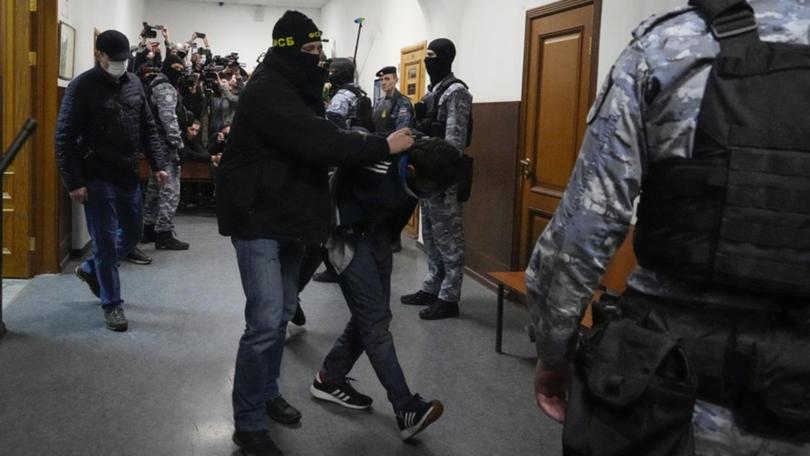
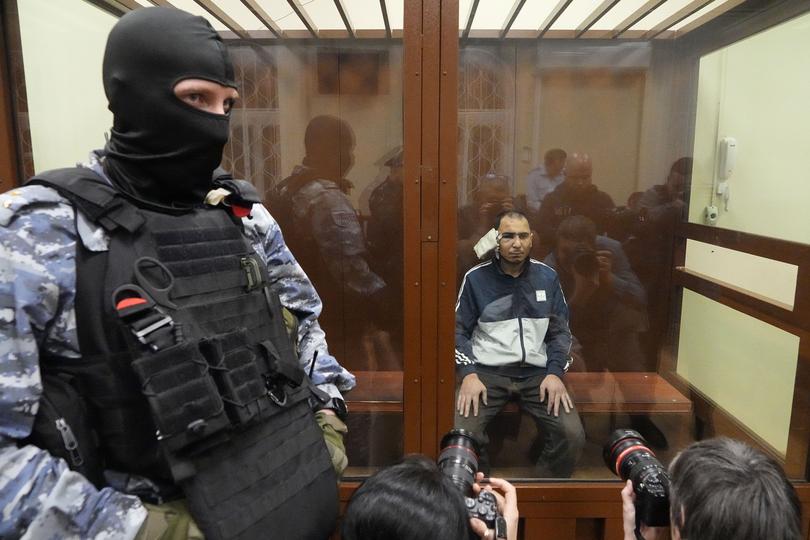
Russia offers obvious opportunities for jihadist recruitment from among poor migrants from the mostly Muslim former Soviet republics in Central Asia. Unofficial figures suggest that Russia has up to 8m migrants from Tajikistan alone.
These migrants represent an important cog in the wartime economy, taking low-paid jobs that Russians do not want, like road-sweeping and minimum-wage construction.
But ethnic tensions have been rising. Mr Putin spoke to them indirectly in his state-of-the-nation speech on February 29th, dialling down his previous nationalist rhetoric and emphasising Russia’s “multi-ethnicity.”
The group that has claimed responsibility for the attack is an affiliate of Islamic State that calls itself Islamic State-Khorasan Province.
Based mainly in Afghanistan but with followers across Central Asia, it carried out twin bombings in Iran in January that killed over 100 people.
One of the sources of its grievances against Russia is the country’s involvement in the war in Syria, where the Kremlin (along with Iran) has backed the Assad regime against Islamic State and other rebels.
Islamic State is also suspected of carrying out an attack on the metro in St Petersburg in 2017 that killed 15 people.
After previous crises Mr Putin responded to any questioning of his power by gripping it tighter.
When he finally reappeared after the Beslan massacre, he declared “the weak get beaten” and cancelled direct local elections.
The crackdowns on dissent and press freedom that followed were a harbinger of worse to come.
More recently Mr Prigozhin’s mutiny saw his plane blasted out of the sky after he had supposedly reached a deal with his boss.
The Kremlin will no doubt use the Moscow attack as a pretext to tighten the domestic screws further.
Some of its most loyal lieutenants have called for the cancellation of Russia’s moratorium on the death penalty for terrorism.
That threat takes on extra significance in light of the Kremlin’s recent habit of applying that label to opponents of the regime, including an elderly writer of crime fiction.
Migrant communities are already feeling the pinch, with raids on mosques and hostels reported in major cities across Russia.
But there is propaganda value in blaming Ukraine, and economic risks attached to threatening migrant workers. So the Kremlin is unlikely to deal with its security vulnerabilities systematically.
Indeed, Mr Putin hinted that the main consequences of the terror attack will be felt in Ukraine.
He may use it to justify attempts to mobilise more troops for his war there. Kremlin-linked media are helping shape the narrative.
One published an “investigation” suggesting that the terrorists were recruited by the Ukrainian embassy in Tajikistan.
Activists from antibot4navalny, a cyber-monitoring group, have recorded a notable uptick in the social-media activity of bots controlled by the FSB, Russia’s security agency.
Most of the fake news blamed Ukraine, as well America and Britain, for the Moscow attack.
An intelligence source in Ukraine says he expects such efforts to be stepped up, using flimsy arguments to redirect blame.
“Perhaps they will start blaming France, too,” he quips. “After all, the men escaped in a Renault.”

